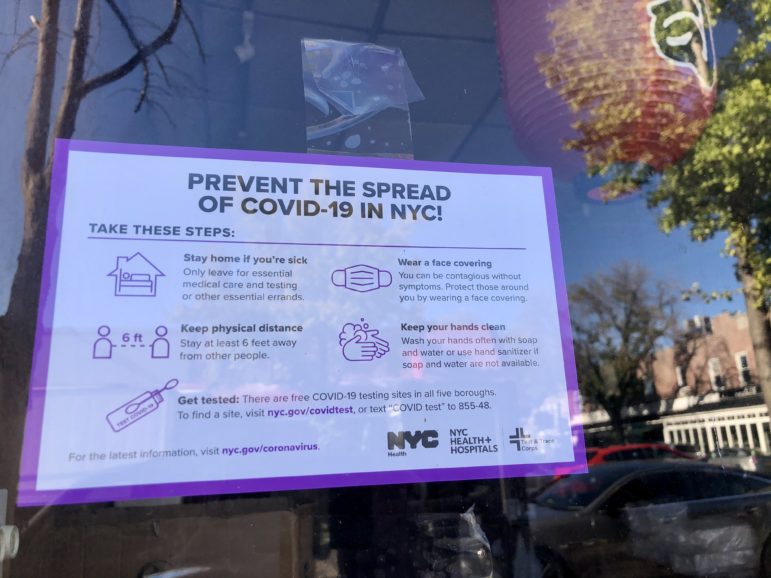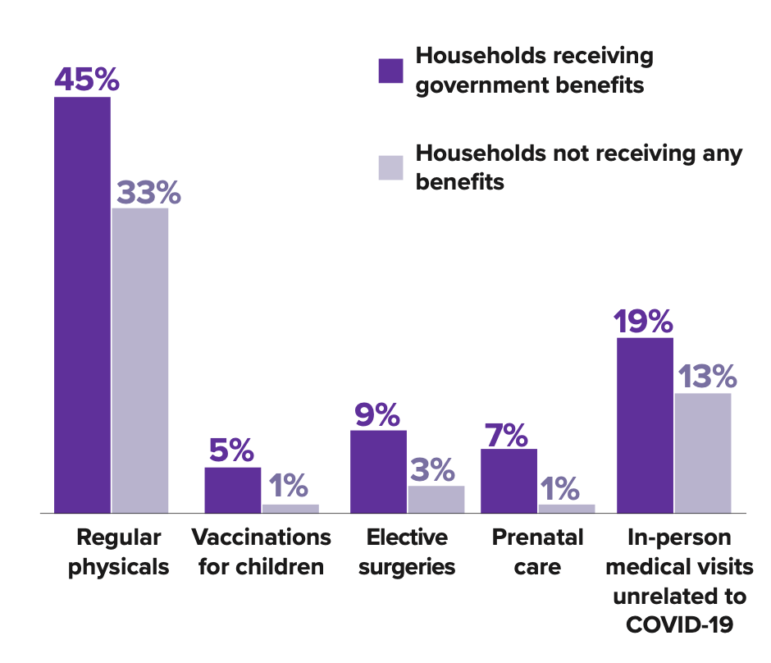Since the start of the crisis, low-income residents are canceling or delaying preventative care like physicals and vaccinations at a higher rate than wealthier residents, a survey released Tuesday found.

The COVID-19 pandemic is impacting the health of low-income New Yorkers in ways beyond just the virus itself, prompting many to cancel or delay preventative care like physicals and vaccinations at a higher rate than wealthier residents, a survey released Tuesday found.
Public Health Solutions (PHS), a nonprofit that serves New York City, summarized the findings in a new report that shows residents across the five boroughs who are struggling financially have had less access to healthcare services compared to wealthier residents since the start of the crisis, among other inequities. The survey, conducted online by a consulting and data firm from Sept. 16-29, reached 1,000 adult residents. The collected survey responses reveal particular disparities in access to COVID-19 care between low-income respondents (defined as an annual household income of less than $50,000) and those making more than $100,000.
For example, 57 percent of low-income respondents say they have not received COVID-19 medical care such as testing, doctors’ visits, and hospitalization, compared with 36 percent of wealthier respondents. This is despite the fact that low-income New Yorkers, along with communities of color, have dealt with disproportionate health and economic consequences from the COVID-19 crisis: city data showed that at the height of the pandemic, Black and Latino New Yorkers died at twice the rate of white residents.

Additionally, the survey respondents who said they receive government benefits (like food stamps and unemployment assistance) more frequently reported canceling several forms of preventative care since March, when compared with those not receiving any benefits. There were disparities between the two groups when it came to accessing regular physicals, elective surgeries, prenatal care and even children’s vaccinations.
The survey results underscore the connection between the city’s economic circumstances and access to health care by showing the large share of New Yorkers who lost their health insurance during the pandemic. Of those surveyed, 10 percent have lost their health insurance during the pandemic, which is up from 7 percent from a prior survey PHS conducted in April. In addition, PHS found that 24 percent of Black and Hispanic low-income respondents either lost health insurance since the pandemic began, or didn’t have insurance before the outbreak and still don’t.
The inequities also extended to the city’s contact tracing program: of respondents with a confirmed or presumed COVID-19 case in their households, 19 percent of wealthier residents said they’d heard from contact tracers compared to just 6 percent of low-income residents surveyed.
“New Yorkers’ basic needs–food, employment, health care–are still not being adequately met because of the cratering economy,” Lisa David, President and CEO of PHS, said in a press statement Tuesday. “New Yorkers living below the poverty line have long faced enormous health disparities compared with those with more money in neighborhoods only blocks away. So while this pandemic is wreaking havoc on all of us, for those who started with less, it can literally mean life or death.”








